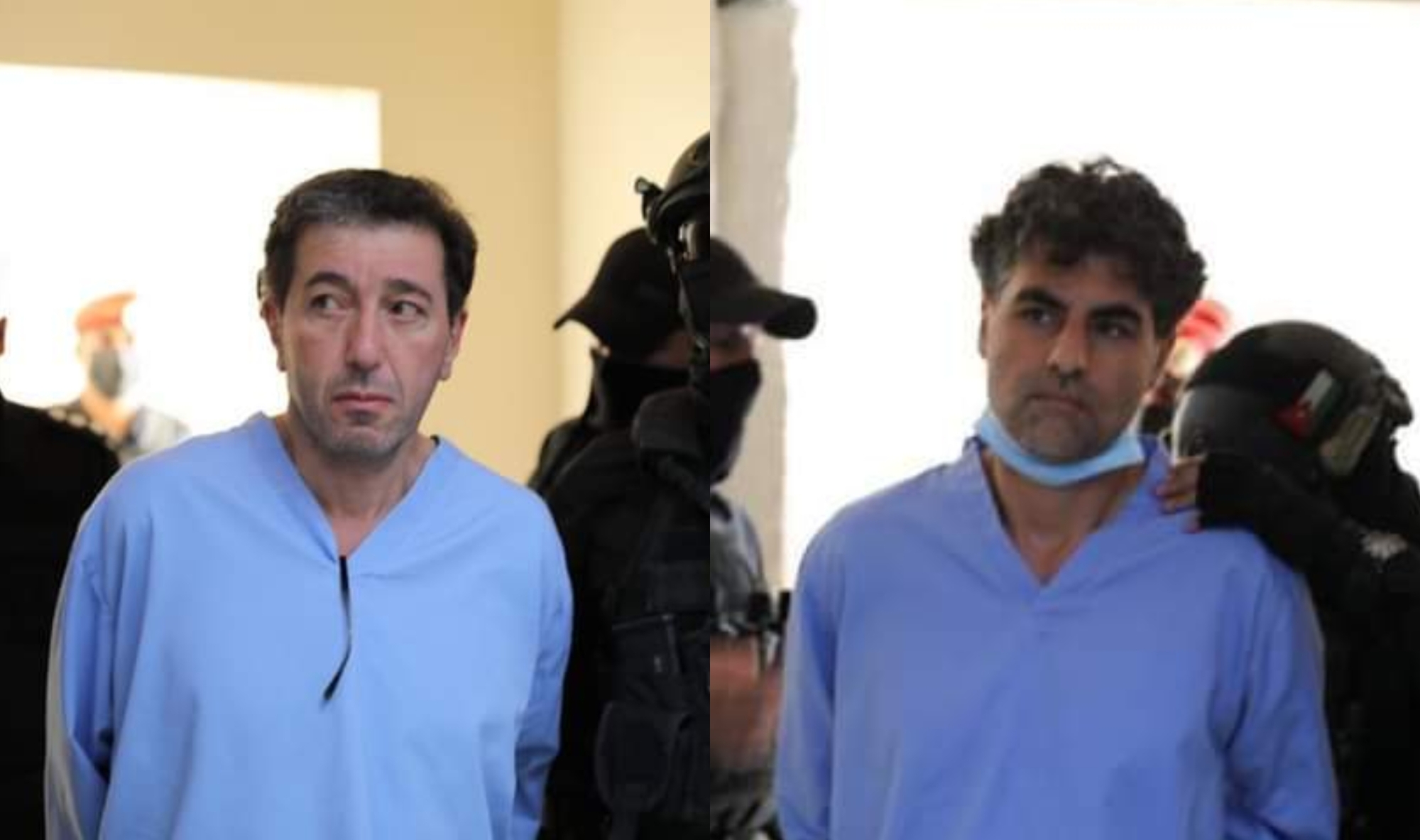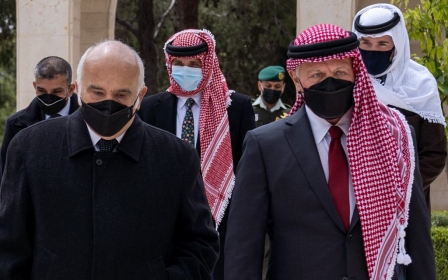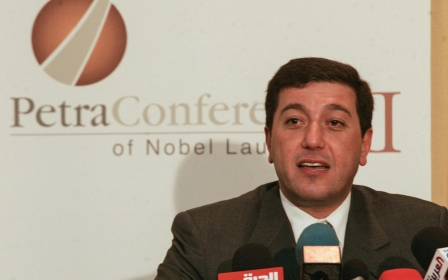Jordan: Who are Bassem Awadallah and Hassan bin Zaid, the officials accused in sedition plot?

A Jordanian court sentenced two former officials on Monday to 15 years in prison over an alleged sedition plot in April.
Bassem Awadallah, a former royal court chief, and Hassan bin Zaid, a low-ranking royal, were sentenced to hard labour over their alleged involvement in a conspiracy to replace Jordan's King Abdullah II with his half-brother Prince Hamzah.
New MEE newsletter: Jerusalem Dispatch
Sign up to get the latest insights and analysis on Israel-Palestine, alongside Turkey Unpacked and other MEE newsletters
Both men have been charged with "incitement against the ruling system" and "sedition". While the charge sheet acknowledged Prince Hamzah's direct involvement in the plot, he himself is not on trial.
Though Awadallah and bin Zaid are known to have ties to Saudi Arabia, Riyadh has strongly denied any involvement in the plot.
Eighteen suspects were originally arrested, but 16 were later released. The trial of the alleged plotters was held behind closed doors in the capital Amman at the State Security Court, a military tribunal that also includes civilian judges.
Middle East Eye takes a closer look at the two main suspects in the alleged sedition plot.
Bassem Awadallah
Awadallah served as economic secretary to the Jordanian premier from 1992 to 1996. He was appointed head of Jordan's royal court in 2007, before being sacked from the position less than a year later.
Following his dismissal, Awadallah moved to Dubai and established a company, Tomouh, and was reportedly living between the United Arab Emirates and Saudi Arabia.
According to the records of Companies House in the UK, Awadallah has extensive partnerships with Saudi businessmen in the Arab National Bank (ANB) and heads the bank's London branch, along with a number of Saudi partners.
He is also known for maintaining a network of prominent business connections, including through his presence on the board of directors of Al Baraka Banking Group in Bahrain.
Awadallah had also served as King Abdullah’s envoy to Saudi Arabia and has close links to Saudi Crown Prince Mohammed bin Salman and Abu Dhabi’s Crown Prince Mohammed bin Zayed.
It is reported that he has spent the last few years working as a consultant for MBS - as the Saudi crown prince is known - with some news outlets calling him one of the masterminds of the part privatisation of Saudi Arabia's energy giant Aramco.
MEE previously revealed that he had been arrested in connection to the alleged plot after intelligence services intercepted voice and text messages between him and the Saudi crown prince, in which they discussed how to destabilise King Abdullah's rule.
Awadallah is referred to in the exchanged messages as "No Lube", because he doesn't drink alcohol.
He was one of several figures whom Jordanians have called to be tried for corruption during protests that erupted in the country in 2011, 2012 and 2018.
Awadallah, 56, last appeared alongside bin Salman at the annual Future Investment Initiative (FII) held in Riyadh in January.
Hassan bin Zaid
Sharif Hassan bin Zaid Al Nasser is a somewhat obscure member of the Jordanian Hashemite royal family, who is known to be close with Prince Hamzah.
A relatively low-profile member of the royal family, he is reported to have formerly served as King Abdullah's special envoy to Saudi Arabia.
He is also reported to have significant business ties to Riyadh. Jordanian news website al-Ghawas said that bin Zaid "lives [in] and owns investments in Saudi Arabia", and that he holds dual Jordanian-Saudi citizenship.
He was additionally charged on Sunday with “possession of a narcotic substance with the intent to use”, and “the consumption of narcotics".
In messages exchanged with Prince Hamzah, bin Zaid appeared to be the middleman who arranged for meetings between the prince and Awadallah.
Just like the Hashemites, the Bin Zaid family hails from the Hijaz region in western Saudi Arabia. His brother Ali bin Zaid, a captain in the army, was killed in 2009 during a Jordanian military mission in Afghanistan.
Middle East Eye delivers independent and unrivalled coverage and analysis of the Middle East, North Africa and beyond. To learn more about republishing this content and the associated fees, please fill out this form. More about MEE can be found here.




